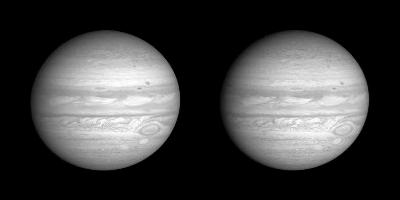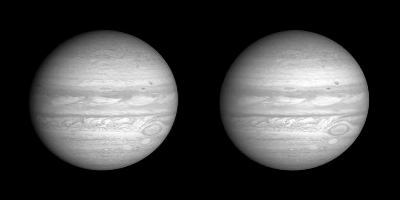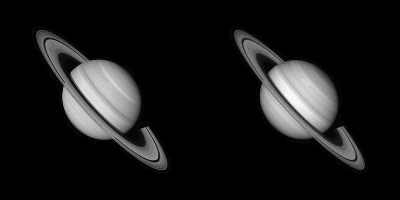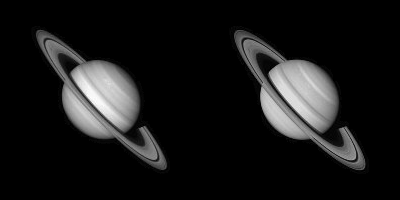Jupiter
For cross-eyed viewing:
For wide-eyed viewing:

Saturn
For cross-eyed viewing:
For wide-eyed viewing:

These images were made by Voyager 2 as it approached Jupiter in 1979 and Saturn in 1981.
Each stereo pair is presented here in two forms: One for cross-eyed viewing and one for wide-eyed viewing. In cross-eyed viewing you look at the left image with your right eye and the right image with your left eye. You may find this easier to learn to do than wide-eyed viewing, in which you look at the left image with your left eye and the right image with your right eye. Images seem closer when viewed wide-eyed.
It takes time and practice to get the images to fuse. Once you
have it, the image generally improves if you continue staring
for a minute, while your eyes and brain adapt, and you make fine
adjustments in the tilt of your head, so your eyes are level.




These images were prepared by NASA, the Lunar and Planetary Institute, the Jet Propulsion Laboratory, and the Voyager project team. For a larger version of the Saturn image that you can view with red/blue glasses, go to NASA's Astronomy Picture of the Day archive.
 To my Space and Science home page
To my Space and Science home page
Jeff Root
December 17, 2002